You are here
New Releases
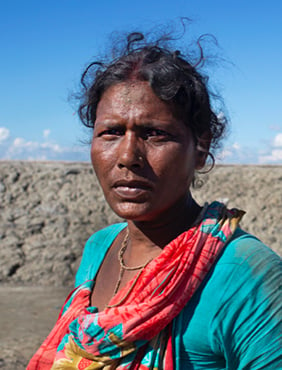
The climate crisis and upholding the rights of women and girls in Bangladesh
As the climate crisis intensifies across Asia, the Pacific, and the world, UNFPA together with the Australian Government, is calling for increased investments in upholding the safety and sexual and reproductive health and rights of women and girls.
This collection of photos provides a glimpse into the struggles that women, girls, and vulnerable groups of people face during disasters across Bangladesh, as well as the support provided by UNFPA through our partners and donors to ensure no one is left behind.
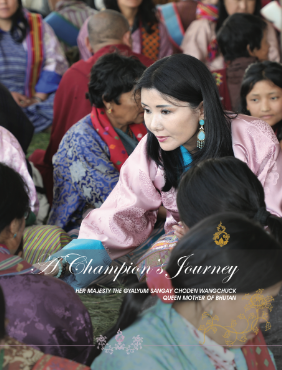
A Champion’s journey: Her Majesty Queen Mother Gyalyum Sangay Choden Wangchuck of Bhutan
We offer this book to recognize and chronicle with our deepest and heartfelt gratitude and appreciation Her Majesty Gyalyum Sangay Choden Wangchuck’s transformative work in advancing the health, well-being and lives of the Bhutanese people, especially women and girls.
Her Majesty’s perseverance, along with her dedicated and committed efforts, has made her a champion of sexual and reproductive health and rights.
Her Majesty’s Service to the Nation is an inspiration to the people in Bhutan and around the world.
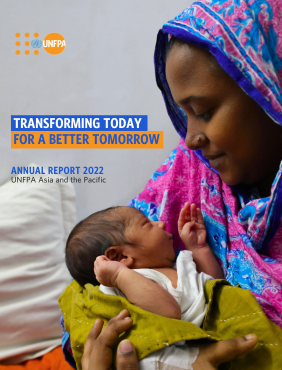
Annual Report 2022: UNFPA Asia and the Pacific
Our region, Asia and the Pacific, is home to more than half of the world’s 8 billion population. Changing demographic trends, characterized by overall lower fertility and mortality rates, as well as rapid urbanization and migration pose challenges and opportunities. Our focus on addressing these issues remains steadfast so that women, girls and young people can access inclusive and quality sexual and reproductive health and rights and that they can exercise their rights and their choices are fulfilled.
In 2022, we picked up the pace and made headway in many areas, helping organize the International Conference of Family Planning in Thailand, responding to 45 major humanitarian disasters, launching a regional advocacy campaign to raise awareness on addressing gender-based violence, supporting efforts to upskill midwives, engaging in value-based dialogues with community members and stakeholders to co-create pathways to reduce harmful practices and social norms, and more.
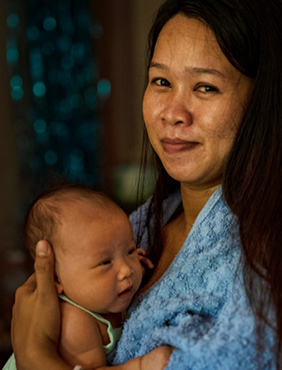
Cash to Increase Facility-Based Deliveries in the Philippines
In 2021-2022, the United Nation Population Fund (UNFPA) in the Philippines introduced Cash for Maternal Health - Emergency Fund in the conflict-affected Maguindanao province. The Cash for Maternal Health project was designed to facilitate safe pregnancy and delivery. Cash was provided after delivery in a health facility to 850 women as a means of encouraging facility delivery, most often at a rural primary level health facility. Cash for deliveries was part of a holistic emergency response that also supported maternal health programming via numerous interventions including the provision of equipment and kits to facilities, the conduct of medical missions, and the provision of community- based maternal health information sessions.
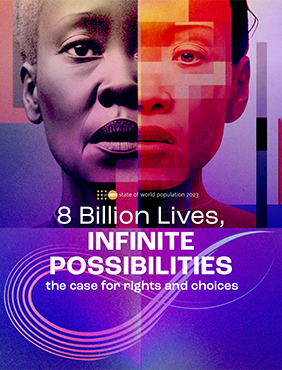
8 Billion Lives, Infinite Possibilities: The case for rights and choices
The State of World Population report is produced by a panel of external advisers, researchers and writers, who work alongside UNFPA technical staff and editors, bringing the insights of leading independent experts together on issues related to the UNFPA mandate. This report explores how people — the general public, policymakers, academics and others — understand current population trends, and how those views can impact sexual and reproductive health and rights.
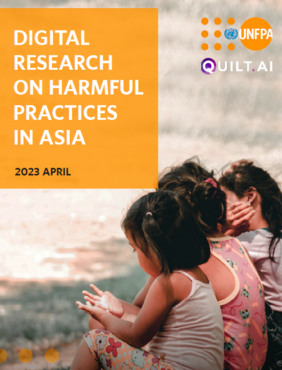
Digital Research on Harmful Practices in Asia
Quit.AI, in partnership with the UNFPA Asia Pacific Regional Office, conducted a digital research on harmful practices, specifically child marriage and GBSS, in chosen geographies including Bangladesh, China, India, Nepal and Vietnam. The research includes a digital ecosystem analysis to understand people’s perceptions, attitudes and behaviours around harmful practices; an influencer mapping to identify emerging online voices, leaders and related campaigns; and a digital footprint analysis for stakeholders to provide recommendations that they are reaching the target audience in providing support or information about harmful practices.
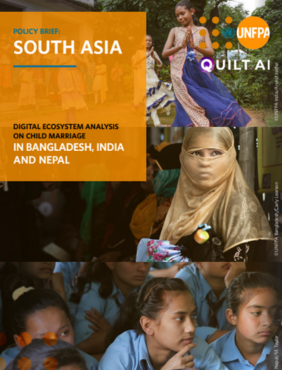
Digital ecosystem analysis on child marriage in South Asia
In the past few years, the South Asian region has seen a sustained increase in information and communications technology (ICT) infrastructure and access to digital technologies and their usage. Quilt.AI and the UNFPA Asia-Pacific Regional Office, combines digital research and artificial intelligence to build an effective communication and advocacy strategy against harmful practices such as child marriage and Gender-Biased Sex Selection (GBSS) in Asia. This report examines online narratives related to child marriage in Bangladesh, India and Nepal.
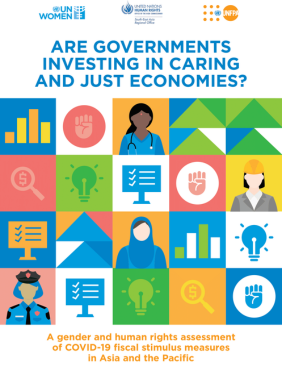
Are governments investing in caring and just economies?
In 2020-2021, the COVID-19 crisis had catastrophic impacts on Asia and the Pacific, affecting economies and societies. It reversed much of the progress made towards the Sustainable Development Goals (SDGs), worsening gender equalities in health, education and labour, and increasing pressures on weak healthcare systems and fragmented social protection systems.
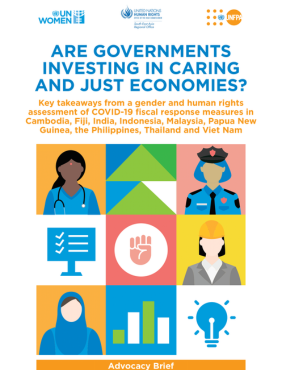
Advocacy Brief: Are governments investing in caring and just economies?
This report is based on an assessment of COVID-19 fiscal stimulus response and policy measures in nine countries in Asia and the Pacific (Cambodia, Fiji, India, Indonesia, Malaysia, Papua New Guinea, the Philippines, Thailand and Viet Nam). Between March 2020 and August 2021, the nine countries deployed a range of fiscal stimulus measures to respond to the impacts of the virus and various containment measures leading to the sudden suspension of economic and livelihood activities.
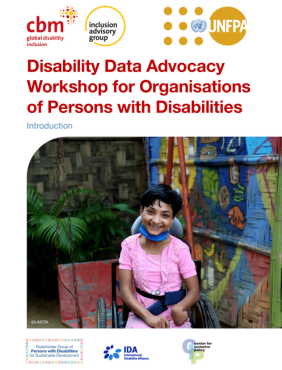
Introduction to Disability Data Advocacy Workshop for Organisations of Persons with Disabilities
Drawing in part on the Disability Data Advocacy Toolkit, workshop materials have been developed to support discussion and reflection on disability data advocacy in the local context. Materials were tested and adjusted based on pilot workshops and feedback from OPD partners including potential facilitators and participants.
The materials were developed by CBM Global’s Inclusion Advisory Group in partnership with UNFPA Asia Pacific, the Stakeholder Group of Persons with Disabilities for Sustainable Development, the International Disability Alliance, and various regional and national OPDs including the Pacific Disability Forum. This partnership aims to build resources, awareness and capacity on disability data with key stakeholders.